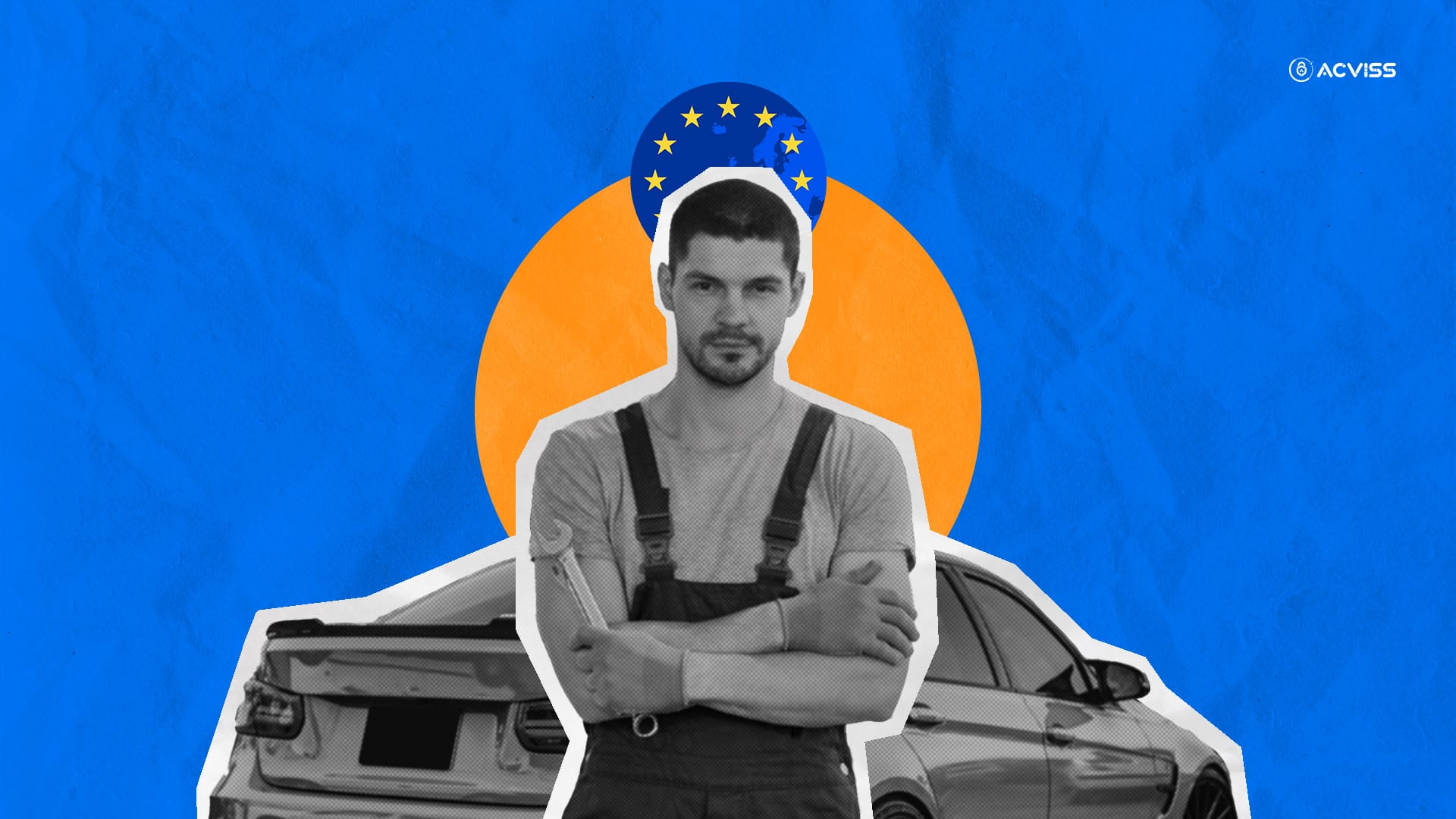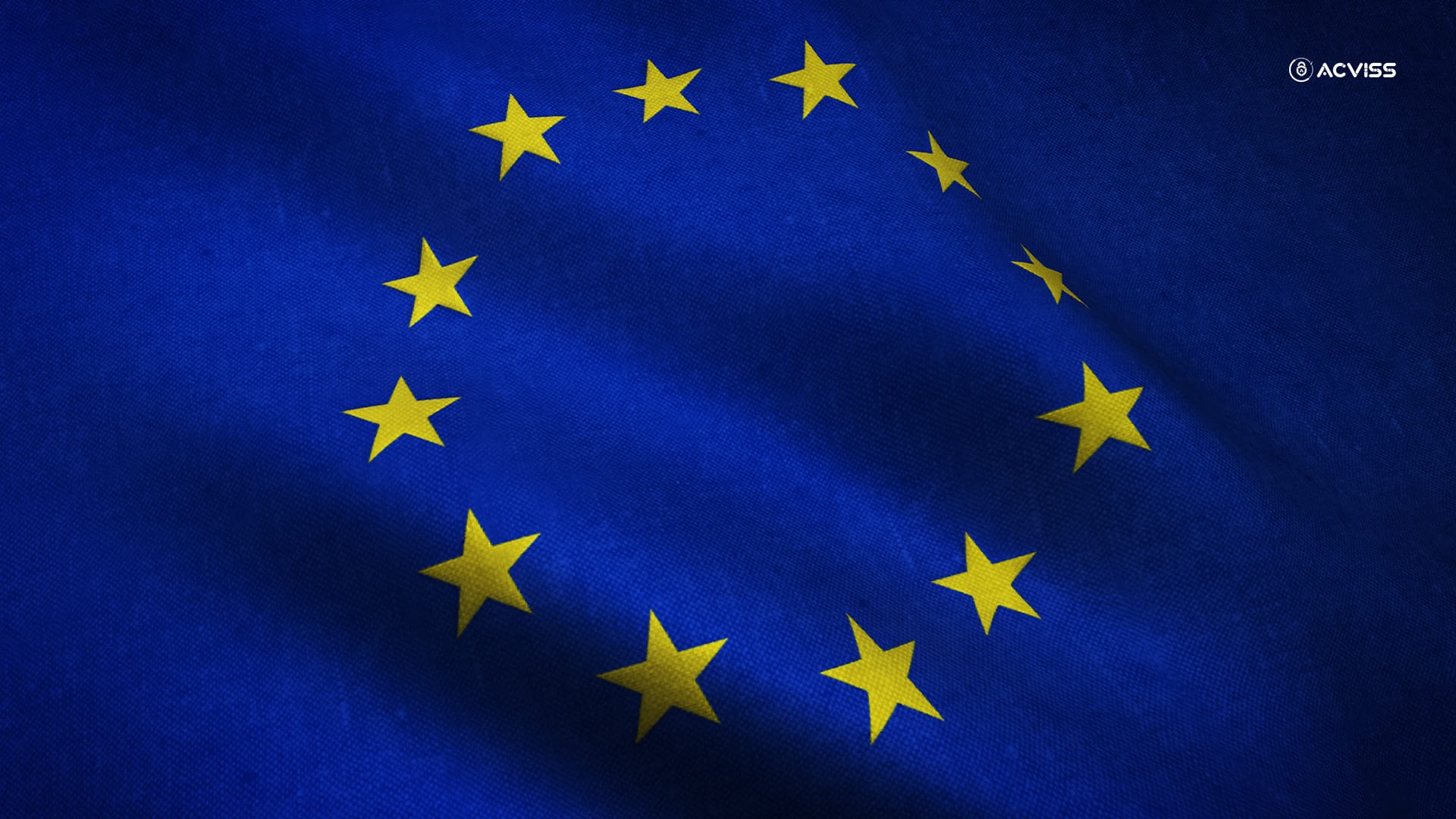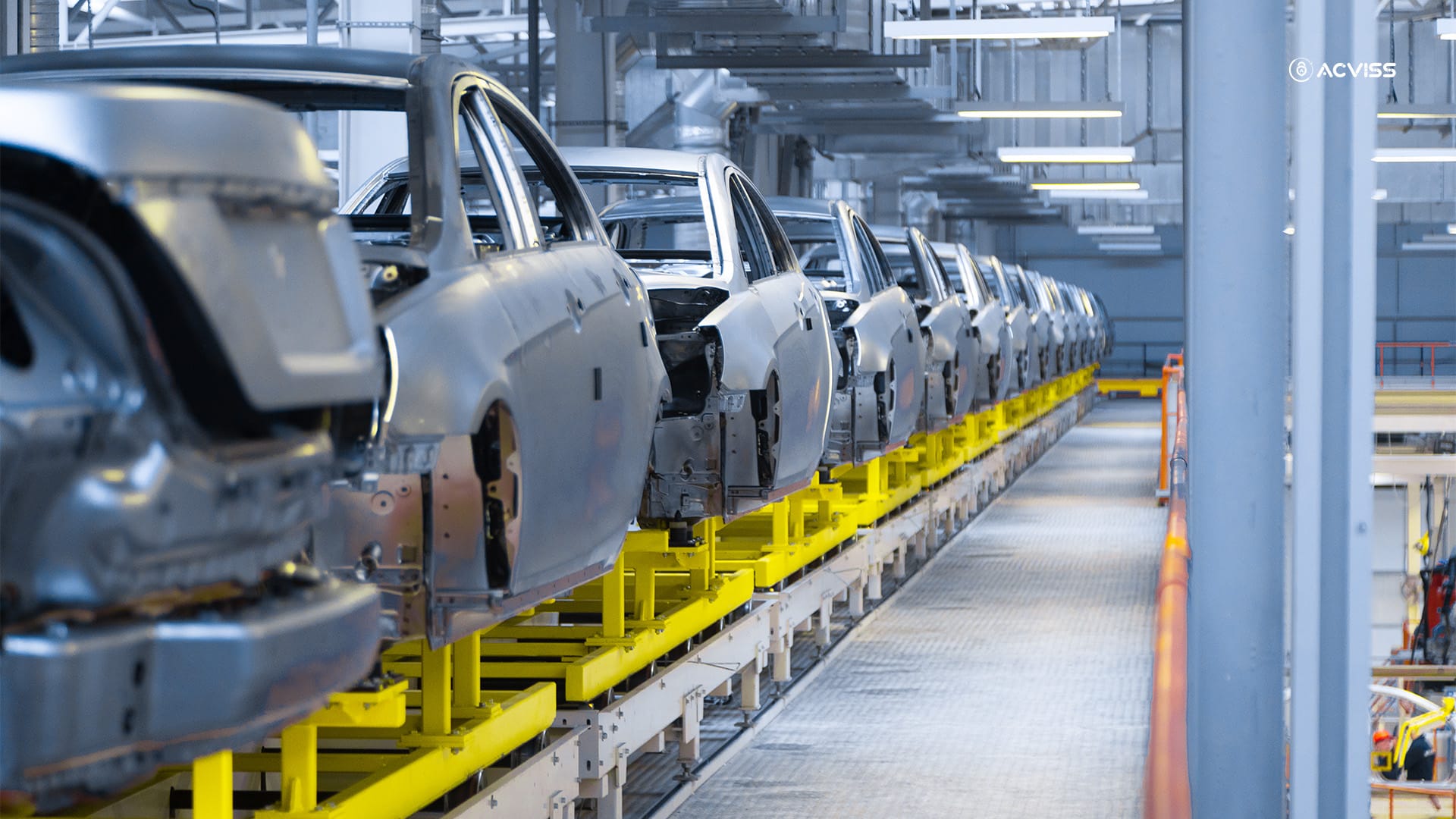Understanding EUDR Regulation: What Automakers Need to Know

As an automobile manufacturer, you are undoubtedly accustomed to monitoring laws that affect your company. Nevertheless, are you familiar with the EUDR (European Union Deforestation Regulation)? If not, now is the moment to pay attention—this is one piece of legislation you should not overlook. For what reason? Because it's beyond simply checking a box for compliance. It's about making your company an icon in sustainable development and redefining the way you source materials.
But first, what is EUDR? The regulation's basic goal is to prevent goods that cause deforestation from being sold in Europe. Its significance comprises many different goods (Any by-products that come from them)
- Coffee
- Soya
- Palm Oil
- Cocoa
- Wood
- Rubber
- Cattle
- Timber
The rule attempts to reduce the contribution of these commodities to deforestation by ensuring that companies obtain resources ethically.
You may be asking why this should worry you if you work in the automotive industry.
Here's the thing: Many commodities that are essential to your business are impacted by EUDR. These are necessary for parts of vehicles. However, these products must originate from deforestation-free sources, which means they must originate from land that was not cleared of trees after December 31, 2020, under EUDR.
What effect does this have on your company, then? What are the criteria for compliance? Let's see the specifics of EUDR and how it impacts automakers like you.
EUDR Compliance for the Automobile Sector
This regulation calls on automakers to check the sources of important commodities like leather and rubber more closely. According to EUDR, you must track these products' whole path to make sure they are acquired and transported responsibly and without deforestation. This should not be disregarded since noncompliance may result in harsh consequences.
Perhaps you're wondering what exactly EUDR covers. Several important goods which are essential to the automobile sector, are regulated by the EUDR regulation:
- Rubber: A common component of tyres, rubber is a major EUDR focus because of its link to deforestation.
- Leather: Used in vehicle interiors, the manufacture of leather can result in the loss of forests, necessitating close supply chain oversight. It may surprise you to learn that premium automobile seats use about half of the leather imported into the EU. In Brazil, where deforestation is a major issue, a large portion of this leather is imported.
- Other Products: Steel and aluminium are not directly linked to deforestation. But, their mining practices may impact ecosystems and face scrutiny in the future.
As an automaker, you’ll need to ensure that these materials meet the new EUDR compliance automotive standards, meaning they can’t come from land that was deforested after 2020, they should be carefully transported separately and not with the regular raw materials, and align with automobile industry regulations EU.
Why Compliance Matters?
The requirement for supply chain openness is one of the main issues raised by EUDR. You will have to track down the origins of materials like leather and rubber. Investigate further, following the path of each commodity across the whole supply chain, not just your direct suppliers. You'll need to find another supplier if they are unable to confirm that their products are obtained responsibly.
Ensuring that automobiles comply with EUDR is essential for preserving seamless operations and gaining access to the EU market as the deadline comes near.
Risk of Non-Compliance:
Breakingthe deforestation regulations car industry will result in severe repercussions:
- Serious financial penalties: charges of up to 4% of your yearly revenue.
- Market access limitations: Products that don't comply may not be allowed to enter the EU, which might cause supply chain interruptions.
- Reputational damage: Over time, your brand's image may suffer from a decline in investor and customer trust.
But what about the timeline? Phased implementation of EUDR is underway, and compliance deadlines are drawing near. Automobile manufacturers doing business in the EU must begin planning now to prevent last-minute scrambling. The shift will go more smoothly if you examine your supply chain as soon as possible and make the required adjustments.
Are you eager to investigate practical solutions that can improve the transparency and sustainability of your supply chain as a whole, while also assisting your automotive company in adhering to the EU Deforestation Regulation? Let us explore the essential tactics that will help you go on the road to compliance!
Solutions for Automakers to Achieve EUDR Compliance

Although achieving EUDR compliance may appear to be a difficult undertaking, it is undoubtedly doable with the appropriate strategy. You can take the following actions to guarantee that your supply chain complies with the regulations:
1. Developing Better Connections with Suppliers
Working closely with your suppliers is the first step. You'll need to insist on greater openness and verifiable evidence that their resources come from sustainable sources. This might entail asking for certifications, checking their supply chains, or moving to vendors that already adhere to international sustainability guidelines.
2. Adopting Track and Trace Technologies
Including Origin by Acviss in your business processes will greatly improve your compliance initiatives. You can monitor and confirm the source of your raw materials with our track and trace for automotive EUDRsolution, which gives you crucial supply chain insight. Here are a few main advantages:
- End-to-End Visibility: You can track materials from the point of origin to the final product by using the QR codes that are attached to each product.
- Assurance of Compliance: The openness offered aids in your adherence to the strict guidelines set out by EUDR.
- Fast Identification: Any non-compliant items may be quickly identified before they are added to your supply chain.
3. Partnerships with Certified Suppliers
Selecting EUDR-certified suppliers is another efficient way to go. You can make sure that all of the materials used in your production process meet EUDR regulations by conducting routine audits and working with certified partners. Here's why this has a major impact:
- Quality Assurance: Certified vendors are more likely to follow sustainable and ethical sourcing guidelines.
- Risk Mitigation: Frequent audits assist in locating and resolving any possible violations of the law.
- Developing a Responsible Brand: Assisting certified suppliers demonstrates your dedication to sustainability and appeals to environmentally sensitive customers.
4. Blockchain in the Supply Chain
Blockchain can help with EUDR compliance significantly. Using blockchain automotive supply chain improves traceability and transparency. It can benefit you in the following ways:
- Immutable Data Management: Keeping an unalterable record of transactions ensures data integrity across the supply chain.
- Real-time tracking: Throughout the course of your goods' lifespan, you can add, examine, and transfer data, guaranteeing that all of the information is correct and accurate.
- Trust Between Participants: Providing equal access to information to all parties involved reduces mistakes and misunderstandings.
The Role of Technology in Simplifying EUDR Compliance

It may be quite difficult to deal with the complexity of EUDR compliance, but technology has creative ways to make it easier and make compliance not just possible but effective. Let's have a look!
1. Digital Solutions for Monitoring Compliance:
Automakers must adhere to EUDR requirements. Technology may be quite helpful to track and confirm your legal sources. Acviss's Origin solutions help guarantee the integrity of your supply chain. Here is how they act as your companion in EUDR compliance:
1. Acviss Certify
The AI-integrated anti-counterfeiting solution enables your customers to verify the authenticity and safeguard your brands. You may reduce supply chain risks and guarantee authenticity using distinctive, non-cloneable labels.
For instance, using Acviss labels guarantees that every product has a unique label that is hard to copy, boosting consumer confidence.
2. Automation and Data Integration
AI and machine learning-powered automation technologies can help you expedite the compliance verification process. This method lowers human mistakes while simultaneously saving time.
- AI-Driven Solutions: Your team can concentrate on key activities by streamlining data collecting and verification procedures with the integration of AI. Example: Without requiring a lot of human effort, you may automate regular inspections with AI-powered solutions to make sure that all production-related items match EUDR regulations.
- Data Integration: Having a complete picture of your supply chain is ensured by connecting many data sources. For instance, real-time updates on compliance status are made possible by automating data flow between manufacturers and suppliers, which facilitates proactive problem-solving. Your compliance activities will be successful and efficient thanks to this degree of automation for EUDR regulations.
3. Sustainability Reporting Tools
Present how automakers can use specific tools to generate EUDR compliance reports.
Disclosure about sustainability, process of the entire supply chain, risk analysis and mitigation report; is necessary to adhere to EUDR rules. All of this is submitted in the form of a Due Diligence Statement (DDS). You may create thorough compliance reports by using certain technologies.
One of the best tools so far is Origin by Acviss. It tracks and traces the entire supply chain right from geo-mapping to see where the goods are sourced from, how were the goods stored and how the goods were transported, all by using blockchain ensuring there is nothing tampered with in the process. This ensures accurate traceability and sustainability in the automotive supply chain.
Case Study
A well-known manufacturer recognized they needed to move quickly when they learned that new EUDR regulations would affect their supplier chain. There was an excessive danger of non-compliance, hefty fines, and maybe being shut out of the EU market. They required a method to increase the transparency of their whole supply chain. This is where Acviss came into play.
The Challenge
One major issue facing the vehicle manufacturer was tracing the origin of components like leather and rubber, which are essential to the production of cars. It became exceedingly difficult to make sure that everything complied with EUDR rules while dealing with vendors in other nations. However, how could they ensure that no raw materials were sourced from deforested areas?
The Strategy
The automotive company collaborated with Acviss to resolve this issue and put the Origin by Acviss as a solution into place. They were able to obtain a comprehensive picture of their whole supply chain by using Acviss' track and trace for automotive EUDR technology. Here is how it is possible:
- Absolute Visibility: Each piece of content now has a QR code, which enables users to monitor the entire process from the beginning to the finished output.
- Compliance Assurance: Acviss let them verify that each component complied with the stringent EUDR regulations.
- Fast Identification: They could identify and eliminate any materials that didn't satisfy the specifications before manufacturing began.
Additionally, they used Certify by Acviss to ensure that every product had distinct, uncopiable labelling, ensuring authenticity.
The Outcomes
Acviss helped the automaker see rapid improvements:
- Improved Compliance: The automotive manufacturer could continue selling vehicles in the EU after fulfilling all EUDR requirements.
- Reduced Legal Risks: Regular inspections and real-time tracking let them stay clear of steep fines.
- Increased Transparency: Acquiring complete command over their supply chain increased confidence among suppliers and consumers.
EUDR Compliance Made Simple
It may seem difficult to meet EUDR regulations, but it becomes much easier using Acviss's tools. Start by gaining full supply chain awareness, ensuring that resources are supplied ethically, and utilising smart technologies to safeguard your brand. Acviss will help you comply with rules and help you create a more transparent and sustainable future for your company. Interested to learn more about EUDR and getting traceability into your supply chain?